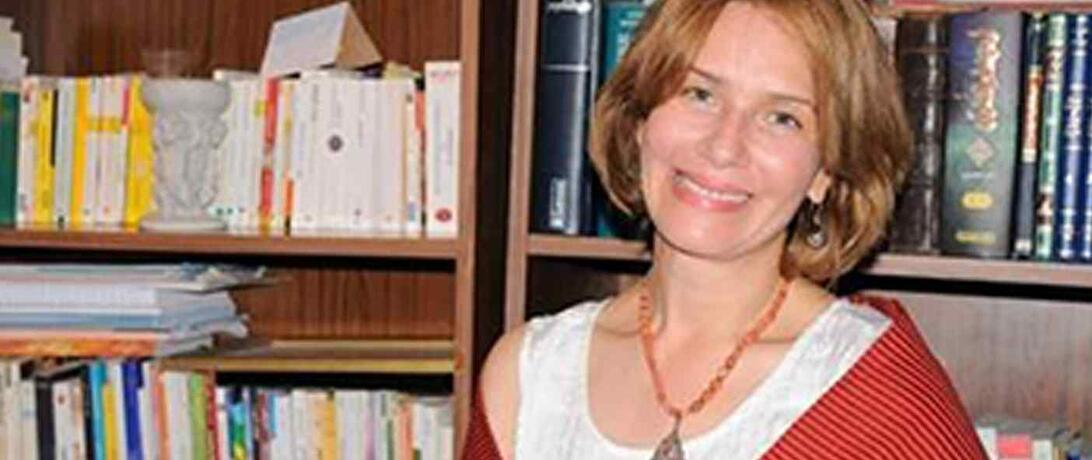
Our Notes from the Field series is designed to highlight the opinions and advice of Women, Peace and Security experts around the world. In this series, we hope to bring attention not only to the tireless work they’ve been doing, but also to their plans for the future.
Our Notes from the Field series is designed to highlight the opinions and advice of Women, Peace and Security experts around the world. In this series, we hope to bring attention not only to the tireless work they’ve been doing, but also to their plans for the future.
Dr. Emna Ben Abdelhamid Jeblaoui has been a university professor at the University of Manouba in Tunis since 1999, and the Founder and Executive Director of the International Institute of Human Development (IDH). Launched in 2013, IDH focuses on promoting new research on Islam and new strategies to counter radicalism. The organization engages private sector participation and encourages creative cultural and educational approaches (videos, rap songs, trainings). Dr. Jeblaoui is passionate about women's, youth, and minority rights in Tunisia and North Africa.
- What are you currently working on?
On the academic level, I am working on new understandings of Islamic sources. In the NGO world, I am the Executive Director of the International Institute of Human Development. Over the course of 2016-2018, IDH is working on the Women 4Peace and Security (W4PS) Platform, which aims to put Tunisian women at the heart of national efforts to consolidate peace and security.
- What is the thing you want to change most in the world?
I want to be part of a high-level movement of research on Islam. I aim to produce creative ideas to reform discourses on and interpretations of Islam, in order to make Muslim women and citizens more free and to allow them to bloom.
- How do you use Women, Peace and Security and UNSCR 1325 in your work?
The Women 4 Peace and Security network is a platform that aims to contribute to the efforts to adopt a national Tunisian plan for UNSCR 1325 and to increase awareness and knowledge of the resolution, which is followed in particular by the 2242 resolution promoting the role of women as actors who can counter terrorism at its roots.
We are partnering with an NGO of policewomen (Ligue Nationale Tunisienne de la Femme Policière, LNTFP). We have already trained 60 policewomen on UNSCR 1325, and are looking for support to train others.
- What keeps you up at night?
My freedom to say what I want to say, to wear the clothes that I want to wear, without the pressure of any traditions or any ultra-conservative establishment. My security, my prosperity, and thoughts about what kind of country Tunisia will be in the coming years. What kind of emerging democracy will my son live in? Will North and West African transnational security vulnerabilities be challenged by women and civil society actors?
Will I be safe? Will I be still free to share my thoughts and my beliefs, as radical groups target free thought? Now we see radical lobbying groups having money, power, and preaching an ultraconservative Islam, and worse—refusing all other, more tolerant interpretations and ways of being Muslim or non-religious in a Muslim country.
- What has surprised you the most about this work?
What surprised me most about Women 4Peace Platform is that producing short films (3-7 minutes in length) was a big success, and that producing counter-narratives through videos and storytelling can be very powerful messaging. Youth actors were also a powerful and positive surprise. We made workshops with teenagers to write slogans against terrorism and the slogans were more interesting and creative than elder beneficiaries, and even more interesting than those of their professors.
- What should we pay attention to now?
“More research, more political will and more women to prompt the message,” as stated in the IDH credo.
We should encourage research on Islamic studies by scholars and academics in universities and think tanks to improve understandings of the peaceful message of Islam, and to prove that violence and terrorism are linked to biased, fascist interpretations by some violent groups. Then we should use results of this research to produce counter-messaging and spread it through media and social media. We are already producing 24 short films with stories of women and men who did something for peace. We’re currently looking for some funding to make the subtitles in order to spread our message on a global level.
On Mother's Day of this year, OSF published a blog on the importance and impact of mothers. One of IDH’s most recent videos further illuminates the influence mothers indeed have in preventing and reversing radicalization. Watch the full video here.
Article Details
Published
Written by
Topic
Program
Content Type
Opinion & Insights